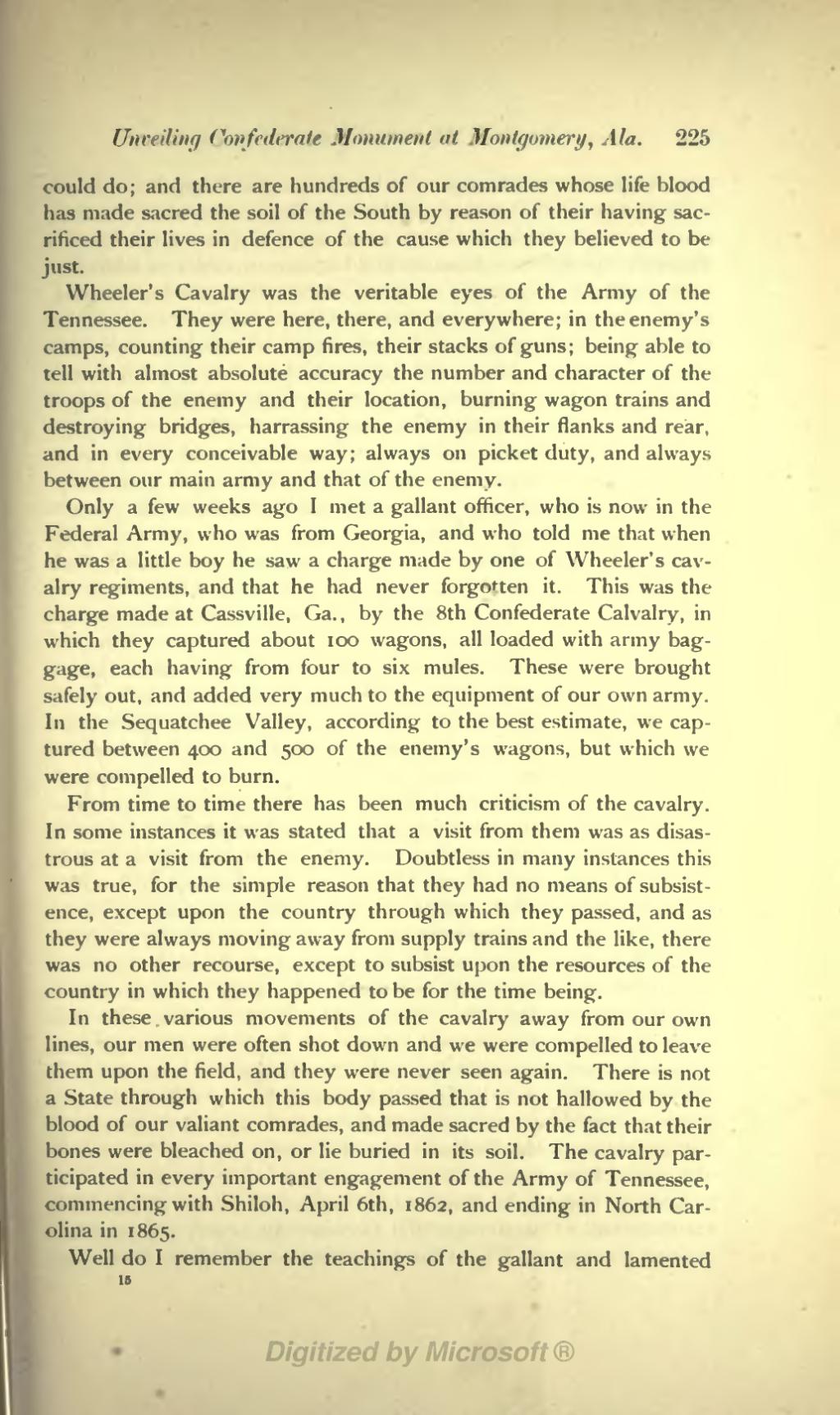f'/n-, /'////// < 'uni',,1, i-tiir Monument ut Montgomery, Ala. 225
could do; and there are hundreds of our comrades whose life blood has made sacred the soil of the South by reason of their having sac- rificed their lives in defence of the cause which they believed to be just.
Wheeler's Cavalry was the veritable eyes of the Army of the Tennessee. They were here, there, and everywhere; in the enemy's camps, counting their camp fires, their stacks of guns; being able to tell with almost absolute accuracy the number and character of the troops of the enemy and their location, burning wagon trains and destroying bridges, harrassing the enemy in their flanks and rear, and in every conceivable way; always on picket duty, and always between our main army and that of the enemy.
Only a few weeks ago I met a gallant officer, who is now in the Federal Army, who was from Georgia, and who told me that when he was a little boy he saw a charge made by one of Wheeler's cav- alry regiments, and that he had never forgotten it. This was the charge made at Cassville, Ga., by the 8th Confederate Calvalry, in which they captured about 100 wagons, all loaded with army bag- gage, each having from four to six mules. These were brought safely out, and added very much to the equipment of our own army. In the Sequatchee Valley, according to the best estimate, we cap- tured between 400 and 500 of the enemy's wagons, but which we were compelled to burn.
From time to time there has been much criticism of the cavalry. In some instances it was stated that a visit from them was as disas- trous at a visit from the enemy. Doubtless in many instances this was true, for the simple reason that they had no means of subsist- ence, except upon the country through which they passed, and as they were always moving away from supply trains and the like, there was no other recourse, except to subsist upon the resources of the country in which they happened to be for the time being.
In these various movements of the cavalry away from our own lines, our men were often shot down and we were compelled to leave them upon the field, and they were never seen again. There is not a State through which this body passed that is not hallowed by the blood of our valiant comrades, and made sacred by the fact that their bones were bleached on, or lie buried in its soil. The cavalry par- ticipated in every important engagement of the Army of Tennessee, commencing with Shiloh, April 6th, 1862, and ending in North Car- olina in 1865.
Well do I remember the teachings of the gallant and lamented
